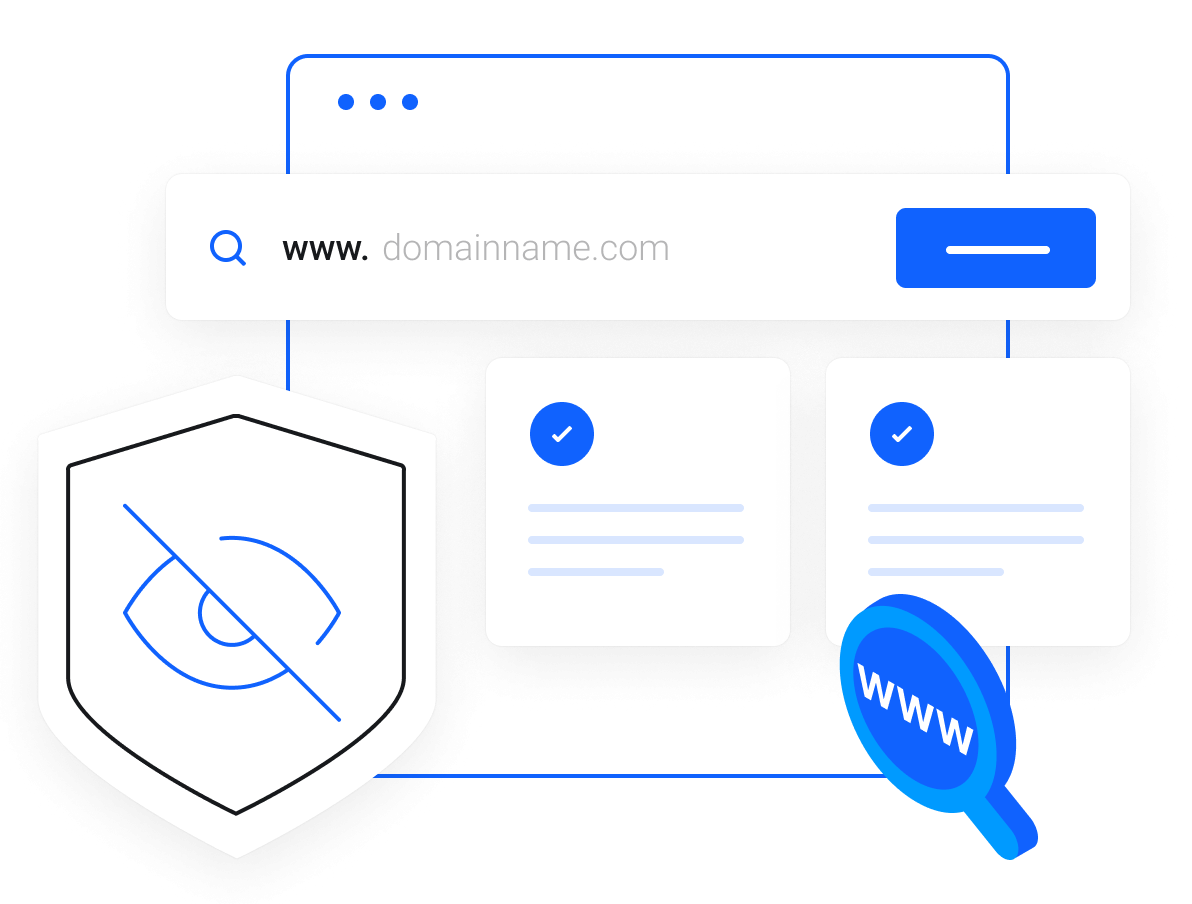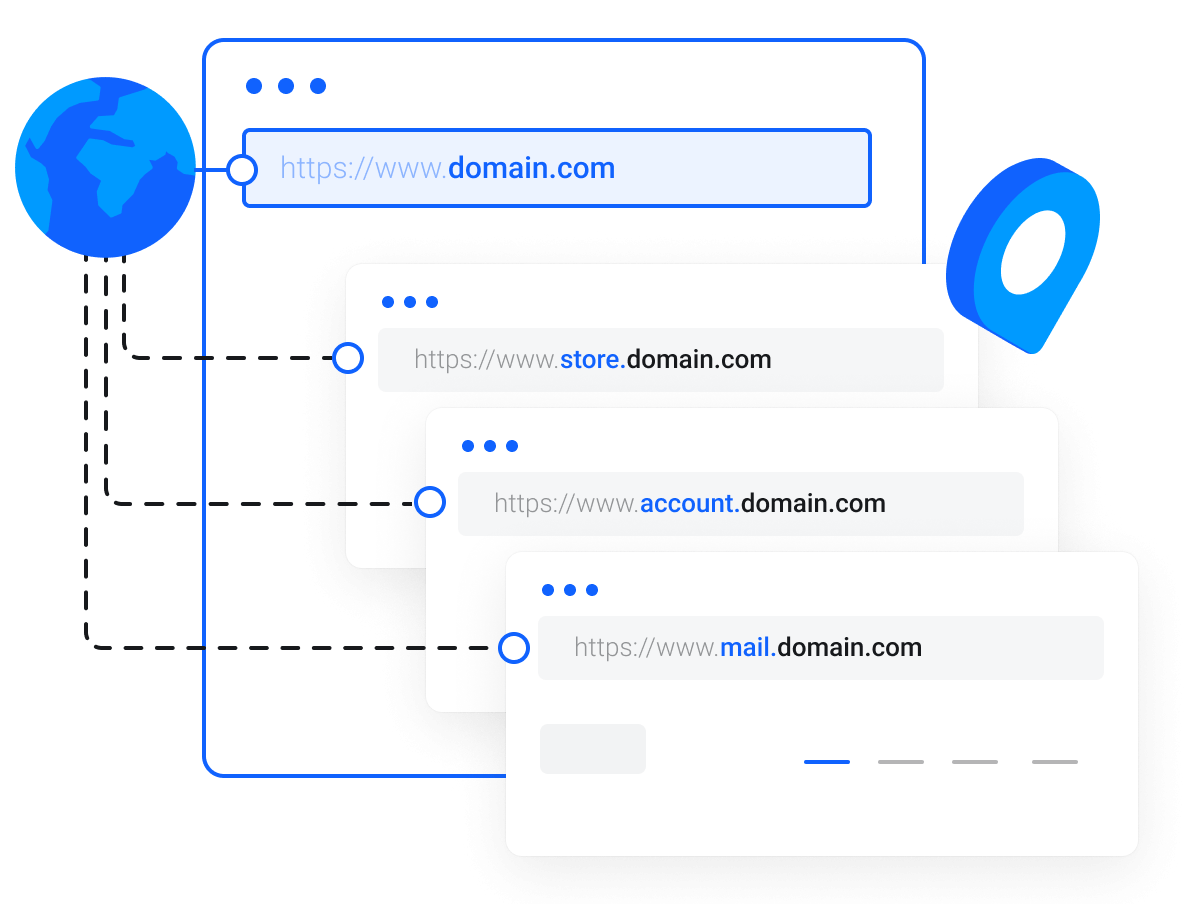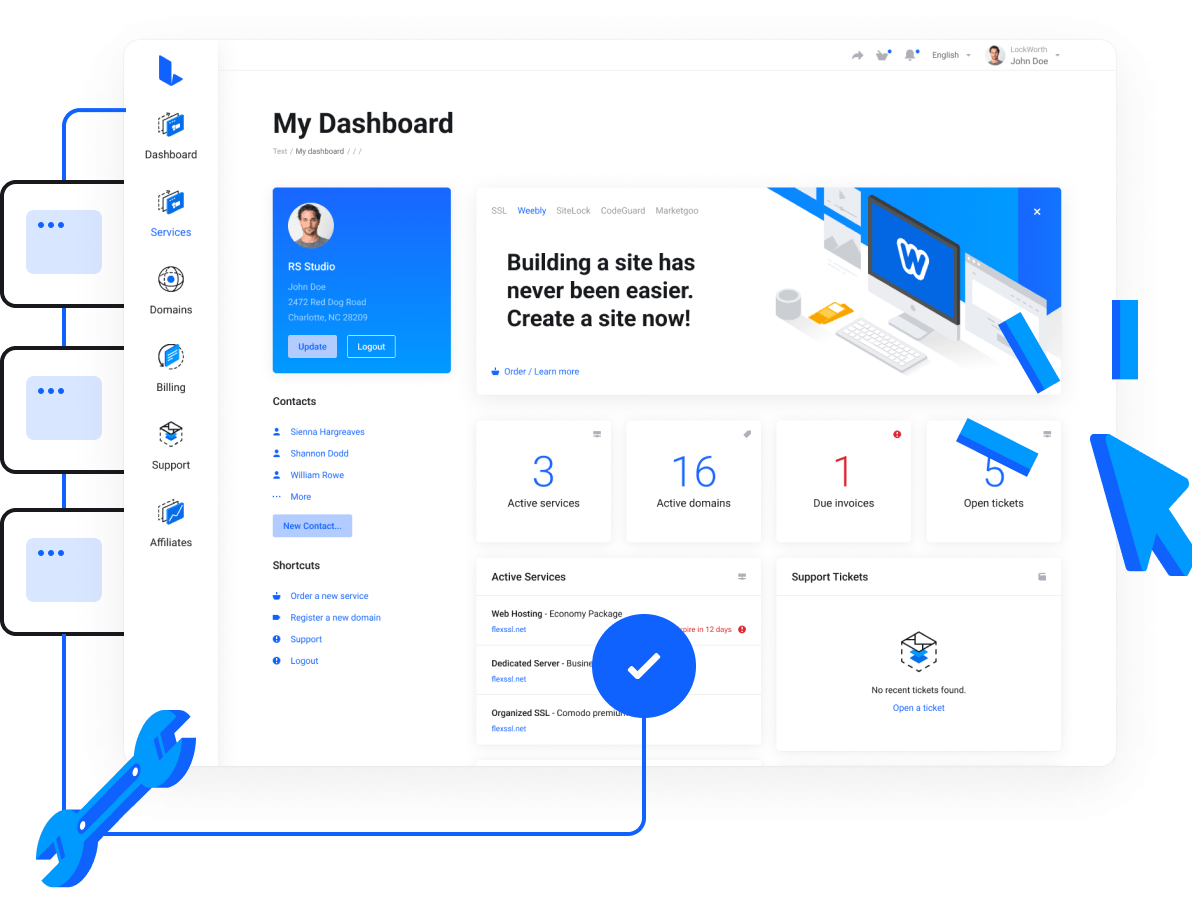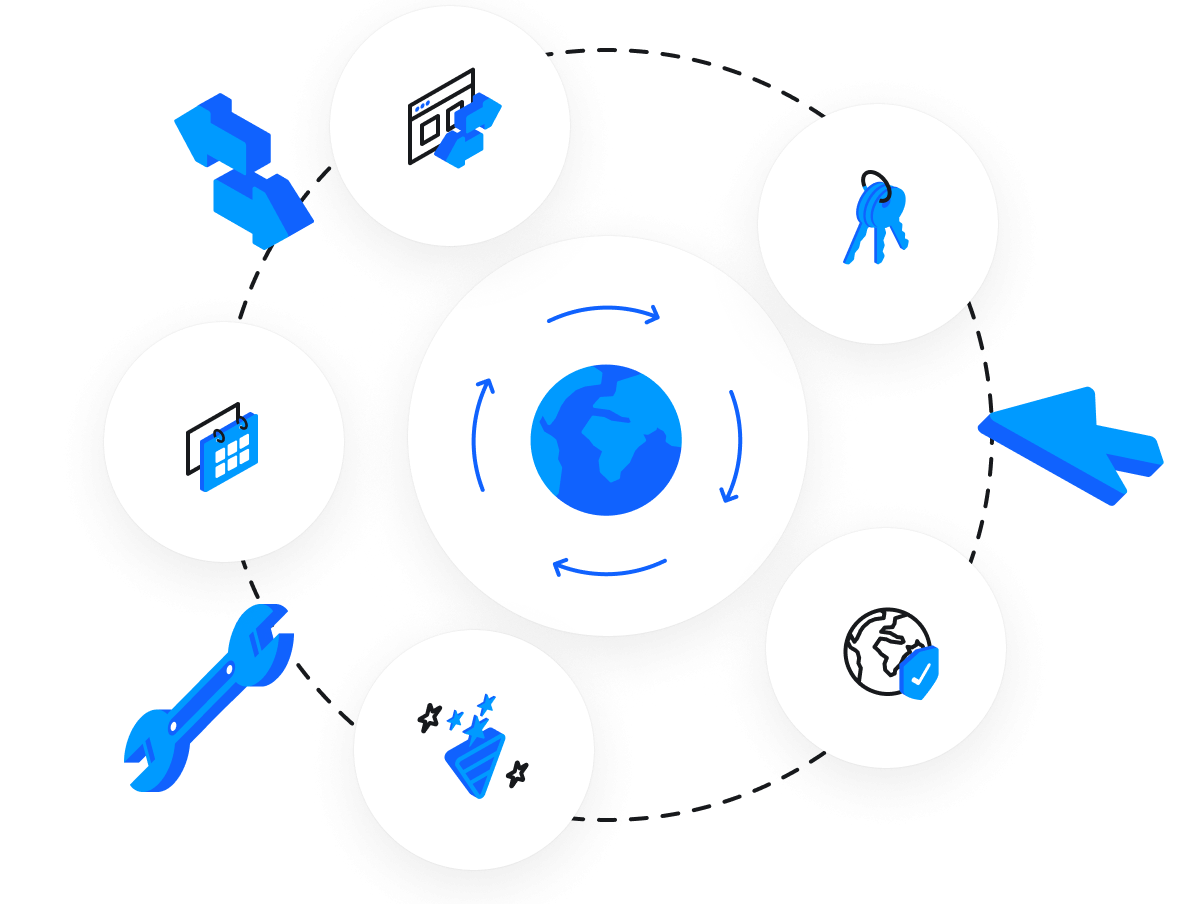
| TLD | Register | Renewal | Transfer |
|---|
A domain name is the web address or URL where visitors find your site. A custom domain gives your site a professional look, strengthens your brand, and helps visitors find you on the web.
When it comes to establishing an online presence, buying a domain and purchasing a hosting package serve two distinct purposes:
1. Domain Name: A domain name is your website's address on the internet (e.g., www.yourwebsite.com). It is how visitors find your site. Purchasing a domain means you are securing the right to use that specific name for a certain period (usually a year), after which you can renew it.
2. Hosting Package: Web hosting, on the other hand, is the service that stores your website's files and makes them accessible on the internet. When you buy a hosting package, you're renting space on a server where your website's data is stored. This is essential for your website to be live and accessible to visitors.
In summary, you need a domain name for your website's address and a hosting package to store your website's content. Both are essential for creating a functional website, but they fulfill different roles in your online presence.
Here are some ways to get a domain name for free:
1. Free Subdomains: Many website builders and hosting platforms offer free subdomains (e.g., yourname.platform.com). While this isn’t a custom domain, it can be a good starting point for personal projects or small websites.
2. Free Domain Promotions: Some hosting providers offer promotions that include a free domain name for the first year when you purchase a hosting plan. Look for services that have such offers.
3. Domain Extensions: Certain domain registrars offer free domain names with specific extensions, such as .tk, .ml, .ga, .cf, and .gq. These are often associated with Freenom, but be cautious, as they may have limitations.
4. Educational Institutions: If you’re a student or affiliated with an educational institution, check if they provide free domain names or hosting services as part of their programs.
5. Open Source Projects: Some organizations provide free domains to open-source projects or non-profit organizations. If you qualify, this could be a way to obtain a domain without cost.
6. Referral Programs: Some registrars offer free domains as part of referral programs. If you refer someone to their services, you may receive a credit that can be applied toward a domain name.
Important Considerations
- Ownership and Renewal Fees: Always read the terms carefully. Some free domains may come with strings attached, such as renewal fees after the first year or limitations on usage.
- Reputation and Reliability: Free domain services might not offer the same level of support or reliability as paid services, so consider the long-term implications for your website.
If you decide to go with a free option, make sure it fits your needs and brand strategy!
Domain name privacy protection can be worth it for several reasons:
1. Protects Personal Information: When you register a domain, your personal information (such as name, address, phone number, and email) is typically made publicly available through the WHOIS database. Privacy protection keeps this information confidential, reducing the risk of identity theft and spam.
2. Reduces Spam and Unwanted Contact: Without privacy protection, your contact details can be harvested by spammers and marketers, leading to an influx of unsolicited emails and calls. Privacy protection helps mitigate this issue by masking your contact information.
3. Maintains Professionalism: For businesses and professionals, having a domain with privacy protection can enhance your credibility. It prevents potential clients or customers from seeing your personal contact information, maintaining a level of professionalism.
4. Increases Security: Privacy protection can add an extra layer of security to your domain registration. It can help protect against domain hijacking, as your personal information is not readily available for malicious actors to exploit.
5. Peace of Mind: Knowing that your personal information is protected can provide peace of mind, especially if you have concerns about privacy and online security.
Considerations
- Cost: Privacy protection often comes at an additional cost, typically a small annual fee. Assess whether the benefits align with your needs and budget.
- Business Requirements: Some businesses may be legally required to display certain information. Consider if privacy protection is suitable for your specific situation.
Overall, if you value your privacy and want to protect your personal information, domain name privacy protection is generally a worthwhile investment.





